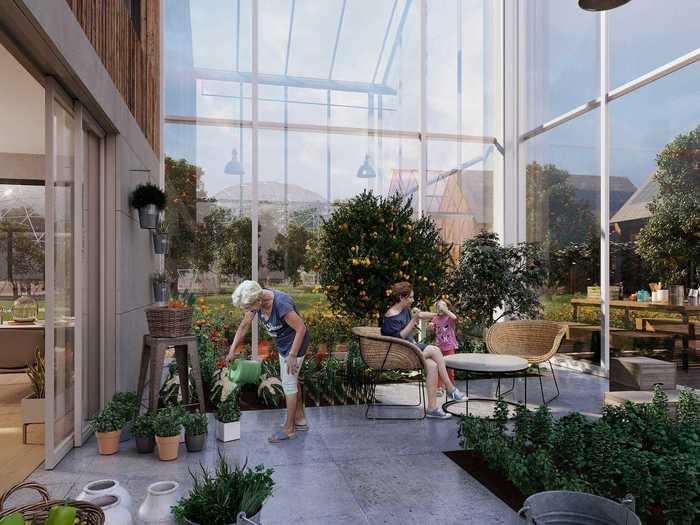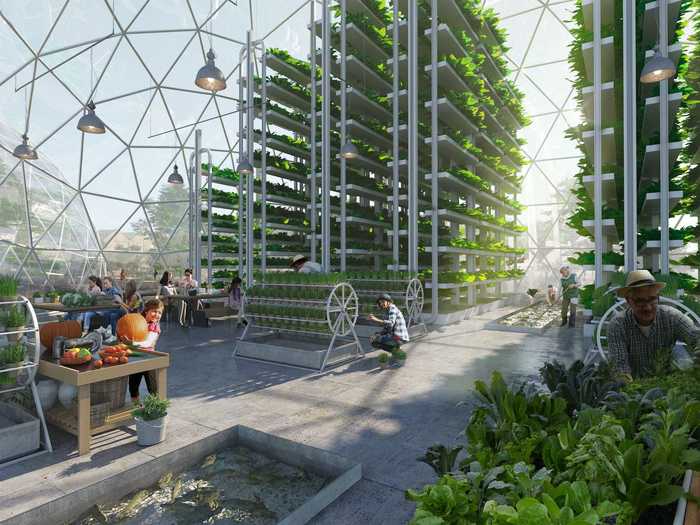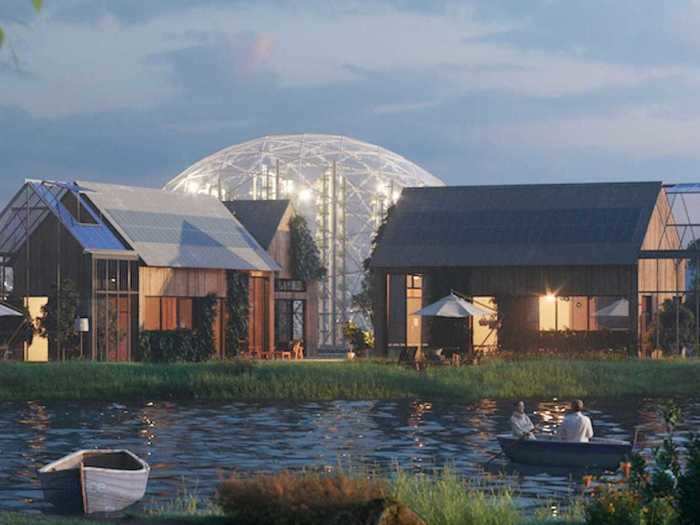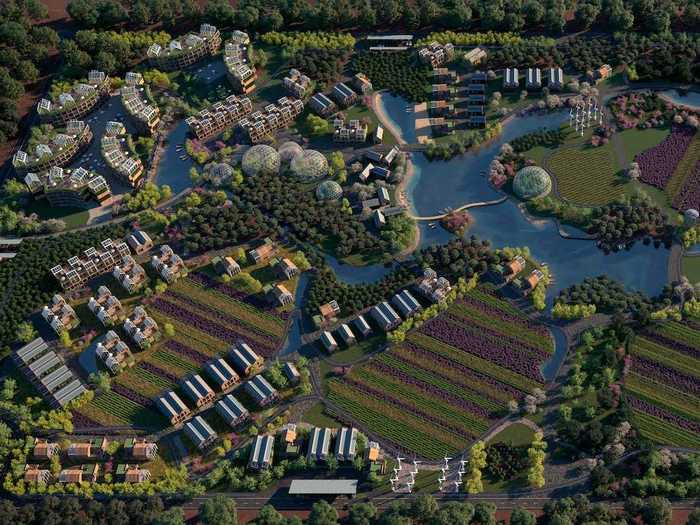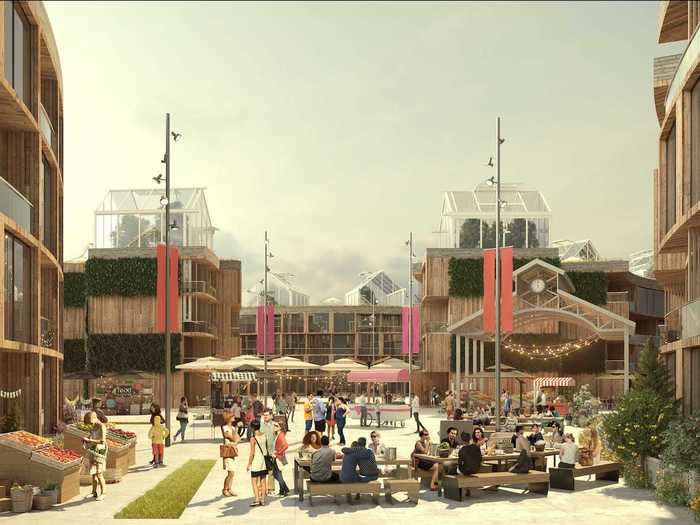ReGen Villages Holding
- ReGen Villages is a startup striving to build self-sufficient communities across the globe.
- The company has yet to develop, but its founder says the concept is perfectly poised to thrive following the coronavirus pandemic.
- The communities could be built in more rural parts of the world, establishing attractive living situations outside of dense major cities.
- As COVID-19 has spread, many in metro areas have flocked to the suburbs or to rural locales to wait out the storm, and many are rethinking their urban lifestyles as a result.
- Visit Business Insider's homepage for more stories.
As the coronavirus disease has spread throughout the world — and through dense cities — many have flocked to more rural open spaces to ride out the pandemic.
As a result, people who are rethinking their urban lifestyles and turning to viable housing conditions in rural parts of the world could be a focus in the future.
James Ehrlich, founder of ReGen Villages, told Business Insider that his startup's sustainable community model could do just that by developing eco-conscious neighborhoods in suburban and rural locales, easing the strain on dense, major cities in the process.
"It's a steam valve, really, for the future of our species going forward," Ehrlich said.
Here's how ReGen Villages and rural areas could lead the way for more efficient housing after the coronavirus pandemic.
Read the original article on
Business Insider
Ehrlich didn't attach a concrete price tag to residence at one of the communities, but he stressed that ReGen would not be a "billionaire bunker."
Each house in a village would have its own greenhouse for growing crops for that household.
ReGen Villages Holding
"It's not a gated community for wealthy people," he told Business Insider.
Instead, he said people at various income levels would be able to take up residence at a ReGen village. Perhaps 40% could be designated for government-subsidized units for the working class, then a portion for a middle-class bracket. Larger units could be allocated for people of means or for older residents looking to downsize.
Ehrlich said people could also buy a villa with a group of friends in the community.
The company hasn't developed one if its planned neighborhoods yet, but here's how they would work.
The self-sufficiency would provide a secure supply of resources.
ReGen Villages Holding
Each community would be outfitted with regenerative systems providing an infinite loop of resources for residents.
For example, household waste could help fertilize aquaponic farms that would grow produce for consumption. Livestock would be raised, which in turn would help fertilize gardens that also produce food. Rainwater would be collected and used for crops, and solar panels would adorn the homes.
The company is developing machine learning and artificial intelligence software, dubbed VillageOS, to use in master planning for community development. The software would also run the physical community.
It could also be used to sync ReGen communities around the world, allowing each neighborhood to share data and learn how to optimize living conditions, energy use, and overall efficiency.
For example, a community in Arizona could learn from one in Africa — both would be operating in similarly arid conditions.
For that reason, Ehrlich has been referring to ReGen as the "Tesla of eco-villages" — the concept is similar to how Tesla uses machine learning to analyze data gathered from autopilot systems in its vehicles, as Business Insider's Dana Varinsky reported in 2016.
Building decentralized, sustainable communities could provide what Ehrlich calls regional local resiliency, which would ease the strain on larger cities by establishing attractive housing options outside of them.
ReGen Villages is actively looking for investment.
ReGen Villages Holding
There is interest from land developers, architects, and construction partners abroad in Sweden, Denmark, the Netherlands, the UK, and the US.
The company has formed a partnership with Britain's Sir Robert McAlpine, one of the nation's largest engineering construction firms and the mastermind behind London's Olympic Stadium. ReGen is also working with Sweden's White Arkitekter on a project that would make this kind of prefab, turnkey housing approach a reality.
Ehrlich said the startup is currently seeking Series A funding, with some "irons in the fire" already.
Ehrlich said green living prospects are in focus since the coronavirus disease, known as COVID-19, upended global operations and our collective way of life.
Establishing attractive housing set-ups outside of major cities could be more of a focus moving forward.
ReGen Villages Holding
"Now especially because of COVID we are literally being inundated with tremendous demand for how we could use [parts] outside of cities — near suburban, peri-urban, and rural areas — to be apart of this new green transition," Ehrlich said.
Many major cities have seen an exodus of residents flocking to more rural parts to stay with family to ride out the global health emergency. Some smaller, rural locales are not prepared to accept such influxes.
ReGen Villages has been working on its community model since 2016.
Residents of a ReGen Village would grow their own food and generate their own energy.
ReGen Villages Holding
The startup was founded by James Ehrlich, an entrepreneur in residence at Stanford University in Palo Alto with 25 years of experience in Silicon Valley under his belt. He serves as part of a White House joint task force on the Nexus of Food, Water, Energy, and Waste and is also a senior fellow at NASA's Ames Research Center.

